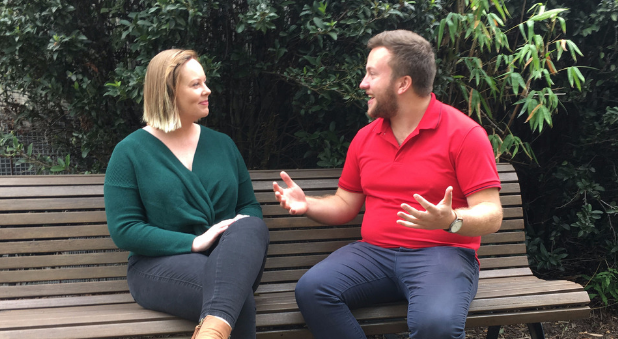On any given Sunday, when most of her fellow students at Moore College are at church in their student minister roles, Bethany Downes goes to jail.
Working as a student minister to a jail
That’s because, this year, she has the opportunity to work as a student minister with Anglicare, which sees her spend each Sunday at Dillwynia Correctional Centre near Windsor.
“I was a social worker with Family and Community Services before college and I was struck by the need of the families that I was working with,” she says. “I thought, working as social worker’s great but I couldn’t meet their underlying need… the need that’s filled through knowing Jesus. I thought if I was really convinced by that I should do something about it!
"I was struck by the need"
“Prison chaplaincy just came to my mind as an opportunity to reach people who may not feel comfortable going to church but may feel comfortable going to a chapel service or visiting the chaplain while they’re in prison.
“The women come from a wide variety of backgrounds, and I want to take the opportunity to listen and learn from their stories and experiences and think about ways we can speak the gospel into their particular situations and histories.”
The first Anglicare student ministers
This year, for the first time, Anglicare’s health and justice chaplaincy is employing two student ministers from Moore College: Miss Downes, and Zack Hankin – both of whom want to go into chaplaincy work after they graduate.
Mr Hankin has joined the team at St George Hospital in Kogarah, where he visits each Wednesday.
“I wanted to learn how to do it well so I needed to be under someone else – I’m learning under [Anglicare chaplain] David Lakos,” he explains. “I love it. It’s really helping me to understand suffering more that I did before.”
"It's helping me to understand suffering"
Mr Hankin has an extra reason for wanting to serve in hospital chaplaincy: he has a brain tumour and between six and 12 years to live, so “I understand it a lot more than most”.
“Whilst knowing the urgency of the gospel and being able to speak into a space that it’s most critical to be heard, it’s also the hardest as well,” he says. “People who may be trying to process [bad news] aren’t in a headspace to hear the gospel as well… you help them process and then give them the hope of the gospel.
“[Having cancer] has helped me get more understanding of how little we listen to people, as a society. The nurses would love to sit and listen and talk, but they just don’t have time. As chaplains, we don’t have a time limit so we can just sit and talk.”
The opportunities for chaplaincy
The manager of health and justice chaplains at Anglicare, the Rev Stephen Gibson, says the fact that people are now going to Bible college thinking about chaplaincy work is “sensational”.
“Chaplaincy work is expanding in the Diocse… so I’m excited about the fact that their presence among the student body will help normalise chaplaincy as one of the career paths a Bible college student can take,” he says.






















